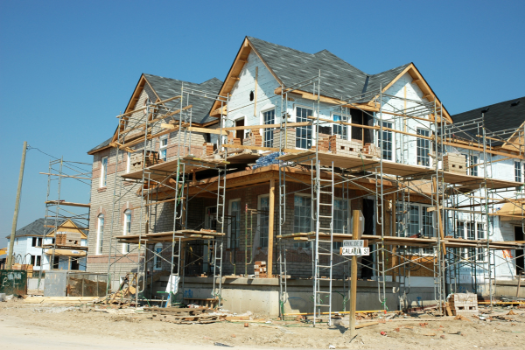
Construction Budget Planning for Residential vs. Commercial Projects: What’s Different?
A good budget can make or break a construction project. Whether you are building a house or a large office, getting the numbers right is critical. Poor planning leads to delays, stress, and unexpected costs. Good planning sets you up for success.
When it comes to construction, not all projects are created equal. Residential and commercial jobs have very different needs. The way you plan, estimate, and spend money changes depending on what you’re building.
This article will help you understand the key differences between budgeting for residential and commercial construction. We’ll break it down step-by-step so you can plan smarter. Whether you’re a builder, project manager, or property owner, knowing these differences will help you avoid surprises and keep your project on track from start to finish.

Understanding Residential Construction Budgeting
Residential construction covers homes, condos, and small apartment buildings. These projects are often smaller in size and shorter in timeline compared to commercial jobs.
Typical budget components for a residential build include:
- Land purchase
- Design and architectural fees
- Permits and inspections
- Materials like wood, concrete, and finishes
- Labor costs
- Contingency for unexpected issues
One big challenge in residential construction is material price swings. Lumber, for example, can spike without warning. Another challenge is client changes. Homeowners often make design changes midway through, which can raise costs quickly.

Best practices for budgeting residential projects include:
- Get detailed bids early from trusted contractors.
- Build a 10-15% contingency fund into your budget.
- Be clear about the design up front to avoid changes.
- Stay in constant communication with your builder.
- Planning carefully will help you stick to your numbers and avoid nasty surprises along the way.
- Understanding Commercial Construction Budgeting
Commercial construction includes offices, hotels, retail stores, and industrial facilities. These projects are often larger, more complex, and longer in duration.
Commercial budgets often cover:
- Site development work
- Architectural and engineering design services
- Specialized systems like HVAC, elevators, or security
- Permit and zoning fees
- Project management and consulting fees
- Strict code and compliance costs
Commercial projects face different challenges. One big one is coordination between many different teams—owners, investors, architects, and engineers. Everyone has their own priorities. Keeping everyone aligned is tough but necessary. Another challenge is staying compliant with strict regulations for safety, accessibility, and zoning.
Best practices for commercial budgeting include:
- Create a phased budget that adjusts as project details develop.
- Use historical cost data from similar projects to estimate.
- Invest in good project management early to avoid costly delays.
- Build bigger contingencies since larger projects come with bigger unknowns.
- With careful planning and clear communication, commercial projects can stay on budget and meet their goals.
Key Differences Between Residential and Commercial Budgeting
While both need careful planning, budgeting for residential and commercial projects is very different.
Cost Factors: Commercial projects cost more per square foot. Materials are often industrial-grade and labor costs are higher due to the complexity. Residential projects use more traditional materials and designs.
Regulations: Residential buildings must meet local housing codes. Commercial projects, however, deal with stricter safety, fire, and accessibility standards. Permitting is more complex for commercial work.
Customization: Homeowners often want personal touches—custom kitchens, flooring, or bathrooms. Commercial builds focus more on function, efficiency, and future scalability rather than custom design.
Risk: Commercial projects carry greater financial risk due to their size and timeline. Risk management strategies, like contractor insurance and bonding, are more critical in commercial jobs than in residential ones.

By understanding these differences, you can create smarter budgets that fit the needs of each type of project.
Tips for Effective Budget Planning in Both Sectors
Whether you’re building homes or high-rises, good budgeting strategies are the same at their core.
Get input early: Involve contractors, architects, and engineers during the early stages.
Review budgets regularly: Update your numbers throughout the project to stay accurate.
Plan for surprises: Always keep a contingency fund ready—10-20% is a smart move.
For residential projects: Focus on keeping owners involved and informed. Their decisions will impact the budget every step of the way.
For commercial projects: Prioritize systems that improve long-term efficiency like energy-saving features. Factor in costs for inspections and future compliance right from the start.

Good planning upfront makes a huge difference when the work begins.
Conclusion
Budget planning is the foundation for any successful construction project. Residential and commercial jobs each come with their own challenges and requirements.
Knowing the differences helps you budget smarter, avoid costly mistakes, and keep your project moving smoothly. Stay flexible, communicate often, and build solid contingency plans.
Whether you're planning a dream home or a major commercial site, good budgeting is the key to turning plans into reality—on time and on budget. Start smart, finish strong.